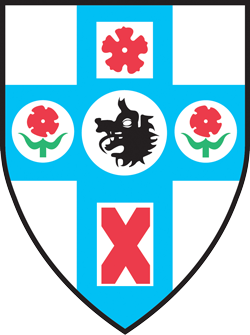To begin, watch the presentation from Mrs Wilcox about the options process.
This happens because the functionality/content marked as “Google Youtube” uses cookies. In order to view this content or use this functionality, please enable cookies: click here to open your cookie preferences.
What do I need to do to help my child with their options?
Please read the information on this page and discuss it with your child. There is information for students on the St. Edmund’s ‘Help me Study’ site which also includes information videos for each option subject – this is available here. There is a subject booklet which has in depth information about each course available here
Once your son or daughter has chosen they need to complete the options form which is available on the Year 9 Google Classroom page. They must be logged in using their school account. The deadline is Monday 15th March.
What subjects will they have to study next year?
All students are required to take GCSEs in the FOUR core subjects of Mathematics, English, Science and Religious Education.
- Students take two GCSEs in English (English Language and English Literature)
- Students who are most able in Science will take three separate GCSEs, one in each of the science subject (Biology, Physics and Chemistry); this is known as Triple Science. Others will take the Combined Science Course, which is worth two GCSEs; this is known as Trilogy Science.
- All students take GCSE Mathematics
- All students take GCSE Religious Studies
What optional subjects can they choose?
All students will take three other subjects.
- Our most able students should carefully consider taking French at GCSE, as this enables them to achieve the EBacc Qualification (GCSE Grade 4 or above in Maths, English, Science. History/ Geography and a Modern Foreign Language).
- Students must choose Geography, History or both
- All students should choose three option subjects, plus one further option as a reserve choice, to be used in the event a course does not run or we are unable to timetable their chosen combination.
What should they consider when making their choices?
The subject choices that they make now will have a crucial influence on their future. These choices will need to be based on a clear appreciation of their current strengths and weaknesses and their ambitions for the future. For most students that will be in St Edmund’s Sixth Form; after that will come university, college, apprenticeship or employment.
Below are some questions that might be useful to ask your child when making those decisions:
1. Think about what you want to do at 16+ (Sixth Form? Apprenticeship? College?) and choose the
subjects that will support these plans.
2. Choose a well-balanced timetable: try not to choose all of your subjects from the same department
3. What are your best subjects? It is a good idea to pick the subjects where you do well.
4. Which subjects do you enjoy? If you enjoy a subject, you are more likely to do well in it.
5. There are some subjects you have not studied before, do these interest you? Find out more about
them; it is sometimes good to have a fresh start and study something different.
6. Do not pick a subject because you work well for that teacher; it may be a different teacher taking
that subject in Years 10 and 11.
7. Do not choose subjects just because your friends have chosen them; you are likely to be in
different groups, anyway.
8. Creative subjects such as Art/Music/Drama can add good variety to your choices.
9. If you wish to achieve the EBacc qualification, you need to choose French. (Unless you are fluent in, and can read/write in another foreign language which contributes to the EBacc qualification, such as Polish, Punjabi, Italian, Urdu, Portuguese – see Mrs Wilcox for a full list of such languages).
10. Think about whether you will be more suited to GCSE qualifications (mainly final exam) or
Vocational qualifications (Some units of coursework are completed throughout the two years of study) .
11. Seek plenty of advice and ask many questions – you can also find out more about each course by looking it up online using the course code given on each subject page.
What advice is available to my child?
What happens after my child has made their choices?
Once all the online forms have been filled in, we will:
- Decide which courses will run. (A course may not run if it hasn’t been chosen by enough students)
- Put the subjects into Option Blocks which ensure as many students as possible can study their choices.
- Where it is not possible to allocate a student their three chosen subjects, use their reserve subject.
- Send an email to each student detailing the subjects they have been allocated. At this point students will be able to either accept these subjects or request changes.

